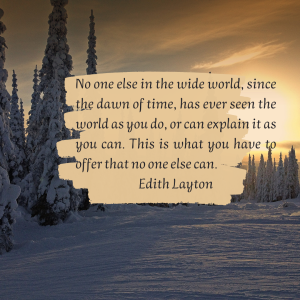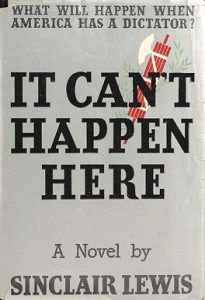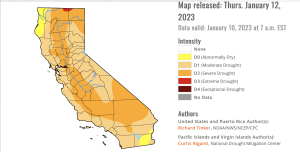I wrote about lost culture for The History Girls last week, and I’d like to continue the conversation with myself today, here.
Our lost past is often the past as experienced by cultural and religious minorities in lands ruled by someone else. My personal quest for lost pasts is currently the European Jewish past. I want to know what my ancestors ceded, culturally and religiously, in order to survive. I want to find out what’s missing. I also want to write more novels that use it.
The vast majority of English-language novels are informed (often very quietly) by Christianity. If writers depart too much from this, then most readers won’t have an expected set of understanding to start from and will have to work much harder to get into the novel. The cultural and religious minorities do the heavy lifting to make multiculturalism work. For the whole of my life I’ve had to do cultural outreach because most people can’t or won’t. This is not a wonderful thing for the everyday, and it also has an uncomfortable effect on our fiction. If the vast, vast majority of readers expect to see an historical world that refers to Christian heritage, then they need to be given a clear path into anything different. Creating that clear path while avoiding tropes and racist constructs can be … difficult.
I’ve got a bit of a history of looking into these things. My academic research examines what we do as writers to construct the worlds for our novels and to narrate the stories set in those worlds. I look into what we see when we build that novel… and what we don’t see. When I started publishing my research, I started with examining how writers use history in fiction, and moved onto cultural encoding. Right now, I’m beginning to have a much more precise understanding of how important genre is as a pathway that readers travel into story.
The novel I’m currently (slowly) working on is set on Earth but in the same universe as Poison and Light and after that same catastrophic war. It’s about lost culture.
The trick will be to welcome readers into a very strange land and to make them want to stay a while. The town at the centre of the story, where everything happens, is almost all Jewish. This was not historically so very odd, the capital city of seventeenth century Lithuania was at least 40% Jewish, for example, and many of the nearby towns were almost 100% Jewish. The history was destroyed when almost all the Jews in these towns were murdered and the English language world was left with some really odd views of that time and place. Christianity informs those views, and so does antisemitism. Moreover, since the Holocaust, most people have forgotten that there were wholly Jewish towns in Europe, that being Jewish was perfectly normative for millions and millions of people. It’s easier, storywise, to describe us as perpetual outcasts.
A Jewish strange land where Jews are safe, however well I can back it up historically, is surprisingly difficult to write. It’s not that Jewish history is lachrymose, it’s that we focus (in popular culture) on the hate and the loss and the tears. It’s easy to do. It’s easier to focus on tears than to to discover lost people and their interesting lives.
What’s important right now is that I think I’ve found a way of building the town so that it contains actual Jewish history (reconstructed with some glaring errors 300 years from now, since future historians and world makers are human, too, and will have their own preconceived notions) while keeping it interesting to the reader. It all comes down, as so many things do in fiction, to the opening.
I could spend another 300 words explaining my theories and how I apply them to create the first words of the novel. Or I could simply give you my draft first words and you can ask yourself, “Would I read this novel?” All the explanations in the world don’t make an opening tempting. Let me give you the words:
Space and boundaries fascinate me. Take, for example, the street I walked through this morning. To most people, it was just a street. A very wide street. Once upon a time it was set up for horse and carriage. In the old, old, old world. Then it was used by motor cars and grew wider. That was the old, old world. It became so wide that, in the difficult days of the old world, there were wooden houses down the middle. They lacked plumbing and almost any other amenity. They became the place where refuse was thrown. The people that society couldn’t accept. Wouldn’t accept. Hated for no good reason. That time didn’t last long. It wasn’t because the bad attitude towards other humans failed. It was because someone in power noticed the value of wide streets. They bought it up, turned it into a market zone and all the rickety houses were knocked down.
It’s ironic, isn’t it, that half the people who live in this town are descended from the poor souls who were thrown out of their homes, like dirty dishwater. Their work brings the tourists in. Their work creates my work. Even walking down this street feels insolent.


 Then the 2016 elections happened and I couldn’t read the damned book at all. Haven’t been able to go back to it since. Lewis wrote It Can’t Happen Here after a trip to Europe in the mid-1930s, when fascism was getting its teeth into Germany and looking hungrily around the continent. He came back to the US urgently talking about the danger, and was told “It can’t happen here.” America was too folksy, too smart to fall for demagoguery. Wouldn’t happen. So Lewis did what writers do: he wrote a book where an apparently clownish politician plays on the worst impulses of the citizenry, wields division and prejudice, and gets himself elected President. Then things get really bad, all within the first 100 days of Berzelius Windrip’s election. Yes, concentration camps, ginned up wars with neighboring countries, the wholesale overtaking of not just state education but private colleges to bring them in line with the “corporate” mindset.
Then the 2016 elections happened and I couldn’t read the damned book at all. Haven’t been able to go back to it since. Lewis wrote It Can’t Happen Here after a trip to Europe in the mid-1930s, when fascism was getting its teeth into Germany and looking hungrily around the continent. He came back to the US urgently talking about the danger, and was told “It can’t happen here.” America was too folksy, too smart to fall for demagoguery. Wouldn’t happen. So Lewis did what writers do: he wrote a book where an apparently clownish politician plays on the worst impulses of the citizenry, wields division and prejudice, and gets himself elected President. Then things get really bad, all within the first 100 days of Berzelius Windrip’s election. Yes, concentration camps, ginned up wars with neighboring countries, the wholesale overtaking of not just state education but private colleges to bring them in line with the “corporate” mindset.
